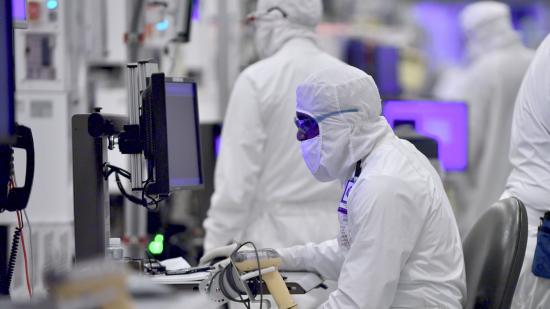Intel will reportedly ease up its entry-level processor stock squeeze in June, industry sources say. Intel has been focusing its efforts on high-performance and server-grade CPUs since late 2018 due to manufacturing constraints hitting its 14nm process node. But that policy looks to be coming to an end.
Notebook clients were reportedly informed that the entry-level processor shortfall with drastically decrease from June onward, significantly reducing the CPU deficit and easing up the pressure on OEMs and system builders. This should increase notebook shipments in the second half of 2019, which had previously been stifled by Intel’s processor manufacturing crunch.
AMD was reportedly set to gain due to the CPU constraints, however, during the red team’s Q1 2019 earnings call, Lisa Su claimed that the company did not see Intel’s shortfall as having any sizeable impact to its business.
“As it relates to CPU shortages in the market,” AMD CEO, Lisa Su, says (via Seeking Alpha). “Look, we see a little bit of that, I would say there are pockets of footage, mostly at the low-end of the market, frankly. So, from our standpoint, I don’t believe it’s a huge contributor to our business.”
So either AMD’s playing off Intel’s impact or the reported wave of OEMs fleeing to AMD’s processors may have never arrived. Nevertheless, according to sources speaking with DigiTimes, major OEMs – such as Dell, HP, and Lenovo – are all back to placing orders with Intel rather than side with the red team.
Red or blue: These are the best CPUs for gaming in 2019
Intel’s small-fry entry-level clients have been hit worst of all by the 14nm manufacturing crunch, as the company has preferred to instead turn its attention toward products with high margins and deliveries to its most sizeable partners.
Intel Japan’s president had previously suggested that it would take until December before the company would be able to entirely rectify the processor shortages. And Bob Swan, Intel’s CEO, indicated the shortage would continue through Q3, while also promising to “never again to be a constraint” on its customers’ growth.
Intel’s CPU shortage had been expected to ease with the gradual influx of 10nm mobile processors starting to ship at the end of 2019. Desktop parts, however, are not expected to make the change towards the denser process node until late 2020. Rather us gamers will have another 14nm generation with Intel Comet Lake, reportedly featuring up to 10 cores.
